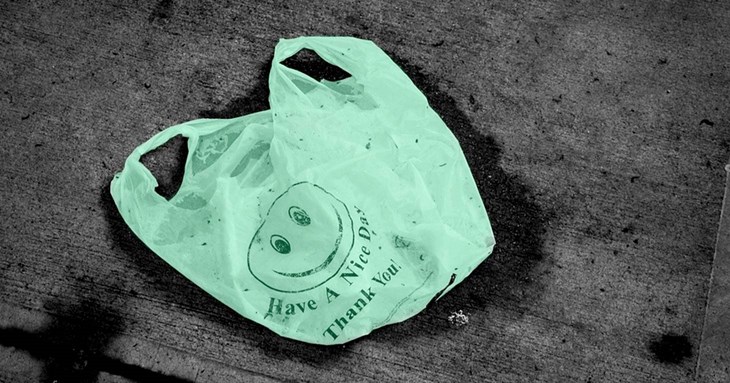Bioplastics are a problem
Published: 14 July 2020

In his regular feature, Denis the Dustcart talks about why Bioplastics are a problem.
You can follow Denis on his Facebook page to keep up with information about Recycling issues.
They are promoted as ‘green alternatives’, but the truth is there is no truly viable end-of-life solution for them at the moment beyond incineration at Energy Recovery facilities.
Contrary to popular belief, bioplastic isn’t good for most industrial food waste processing. Quite the opposite.
Let's have a closer look at what's going on here.
The basic material for cornstarch (sugar derived from corn) takes a lot of land and water to grow and fuel to harvest and transport, and the crop is usually genetically modified as it is generally the same crop used to produce feed for livestock. The global rearing of livestock is, in itself, a major cause of climate change; feed is rarely thought about as a factor in this, and the use of GM crops to resist ‘pests’ raises concerns about the impact this has on the ecosystem (though the higher yields using less land is an environmental point in favour of GM, concerns remain about herbicide usage and the crops' effect on pollinators, etc.).
A thin 'standard' plastic bag, on the other hand, is made either by recycling the bags you take back to the supermarket or, if it's virgin plastic, from byproducts of the oil-refining process or of natural gas production.
The impact of fossil fuel production on the environment has long been known, however it's important to note that plastic uses under 10% of oil and gas extracted in Europe, with more than 80% being used for electricity, heating and transport.
By avoiding plastic, we are not avoiding the consumption of fossil-fuels. If the production of our chosen alternative is a particularly intensive process, we may actually end up contributing to the use of more fuel.
According to letsrecycle.com, “WRAP [Waste and Resources Action Programme] said unless bioplastics are rapidly soluble or dispersible, a form of pre-treatment such as shredding is required to make them suitable for processing by wet anaerobic digestion.”
In other words, they are too sturdy to be composted effectively even in industrial food waste processing facilities unless they are put through further energy-consuming processes.
To make bioplastic durable enough to be useful, it can’t be made easily soluble or dispersible. Can you imagine a coffee-cup made of readily-soluble material? Hardly a practical solution.
Think about this for a moment: one of the main reasons people state for avoiding plastic is their concern for its physical legacy when it gets in the sea, but soluble bioplastic is impractical for use in shopping bags, coffee cups or food waste caddy-liners.
As for food waste (and here let me head off any questions about Exeter’s food waste future by saying it's in the advanced planning stages), cornstarch bags and containers have to be removed by the processor prior to the waste being composted, whereupon they are sent to Energy from Waste – the same fate that would befall cheap plastic alternatives. Moreover, the machines used to extract the material from the food are less able to remove the stretchy cornstarch bags effectively, making for a greater risk of contamination and a greater use of energy
Authorities that collect food are faced with a difficult proposition: promoting the use of plastic bags to line food waste caddies.
Bioplastic bags are certainly more expensive than plain old plastic bags, and if they are a false solution then what’s the answer?
Takeaway coffee is easy: take your own cup. Carrier-bags: take your own bag.
Food waste caddy-liners: not so easy.
Paper leaks (it’s soluble), making collection hazardous for the crews and resulting in foul-smelling bins that require washing more often, using more water. Moreover, paper production and transportation uses incredible amounts of fuel, energy and water – much more so than thin plastic – and this, together with deforestation and the growing of 'sustainable' or 'renewable' monoculture woodlands at the expense of biodiversity, somewhat goes against the argument for replacing plastic with paper.
For the moment, it’s probably best to repurpose bags bought with other goods – salad bags, bread bags, etc.. Not ideal, of course, because we’re all trying to move away from prepackaged goods where possible.
The best solution is yet to be invented. This is one of the many challenges we face in owning the general climate emergency.
